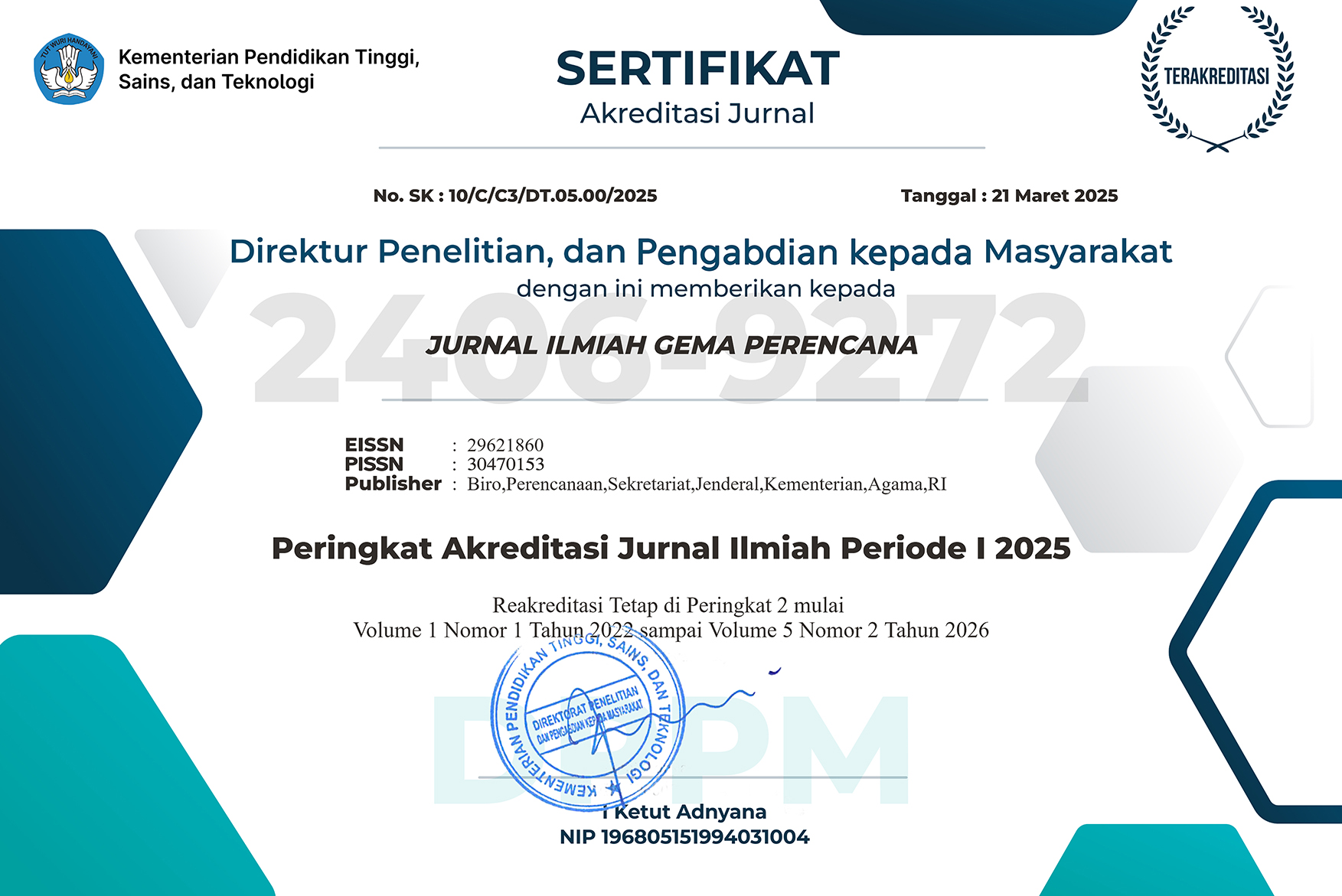The Urgency of Development Ma'had Al-Jami'ah in Implementing Boarding-Based Education (Study at UIN K.H. Abdurrahman Wahid Pekalongan)
DOI:
https://doi.org/10.61860/jigp.v2i2.54Abstract
This article describes the issue of implementation of Islamic boarding school -based education that needs to be supported by adequate facilities and infrastructure, one of which is the student dormitory building of UIN K.H. Abdurrahman Wahid Pekalongan, as the only State Islamic Religious College in the former residency of Pekalongan. This article aims to analyze the urgency of the Ma’had Al-Jami’ah student dormitory development program for the implementation of Islamic boarding school-based education at UIN K.H. Abdurrahman Wahid Pekalongan and to examine various opportunities to realize this based on existing conditions. This article uses a qualitative research method, with a descriptive exploratory approach. Data were obtained from various literary sources that are considered credible and from Ma’had Al-Jami’ah UIN K.H. Abdurrahman Wahid Pekalongan related to the student dormitory development program. Then to analyze the data that has been collected, the authors use content analysis techniques. Based on the study conducted, it was found that the student dormitory building at the State Islamic Religious College has two main functions. First, as a proper place to live for students. Second, as a place for Islamic boarding school-based education in higher education by Ma’had Al-Jami’ah. The aims, objectives and benefits of building the Ma’had Al-Jami’ah student dormitory are very important and strategic for UIN K.H. Abdurrahman Wahid Pekalongan as mapped by Ma’had Al-Jami’ah in the 2022 Ma’had Al Jami’ah Special Dormitory Development Proposal. The most visible obstacle at this time is more on the budget side to fund this strategic project.
Downloads
References
Buku:
Irwanto.2006. Focus Group Discussion Jakarta Yayasan Obor Indonesia
Kusek, Jody Zall Kusek dan Ray C. Rist. 2004. “Ten Steps To A Results-Based Monitoring And Evaluation System : a handbook for development practitioners”. World Bank. Washington DC.
Nasution,S. 2003. Metode Penelitian Naturalistik Kualitatif. Bandung Tarsito.
Zuchri Abdussamad (2021). Metode Penelitian Kualitatif. Makassar: Syakir Media Press.
Jurnal:
Kusuma, Pambudi, dan Suprayitno. 2019. “Pengaruh Standar Biaya Keluaran Terhadap Efisiensi Anggaran Kementerian Negara/Lembaga.” Jurnal Anggaran dan Keuangan Negara Indonesia. Vol. 1, No. 1
Lestari, Niken Ajeng. 2019. “Metode Monitoring Dan Evaluasi Standar Biaya Keluaran.” Jurnal Sistem Penganggaran Sektor Publik: Vol II. P.82-97. Direktorat Jenderal Anggaran, Kementerian Keuangan. Jakarta.
Lestari, Niken Ajeng. 2019. “Hasil Monitoring dan Evaluasi Standar Biaya Keluaran Tahun Anggaran 2017.” Jurnal Anggaran dan Keuangan Negara Indonesia. Vol. 1,.Direktorat Jenderal Anggaran, Kementerian Keuangan. Jakarta.
Peraturan:
Undang-Undang Nomor 17 Tahun 2003 tentang Keuangan Negara
Peraturan Pemerintah Nomor 90 Tahun 2010 tentang Penyusunan Rencana Kerja Anggaran Kementerian Negara dan Lembaga
Peraturan Menteri Keuangan Nomor 71/PMK.02/2013 tentang Pedoman Standar Biaya, Standar Struktur Biaya, dan Indeksasi dalam Penyusunan RKA K/L.
Peraturan Menteri Keuangan Nomor 123/PMK.02/2021 tentang Standar Biaya Keluaran Tahun 2022.
Downloads
Published
How to Cite
Issue
Section
License
Copyright (c) 2023 Sobi Ghozani

This work is licensed under a Creative Commons Attribution 4.0 International License.








